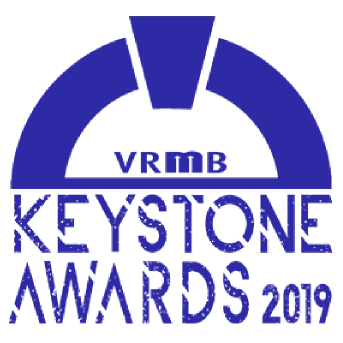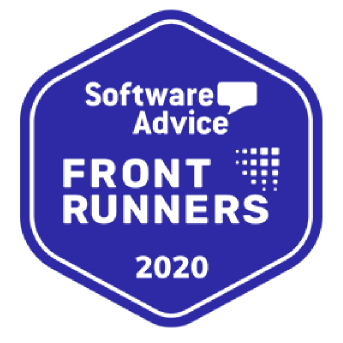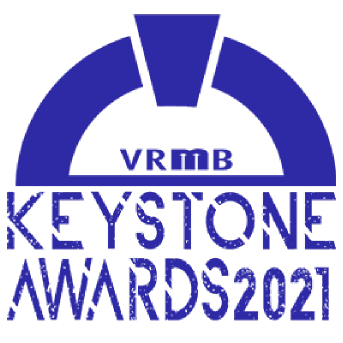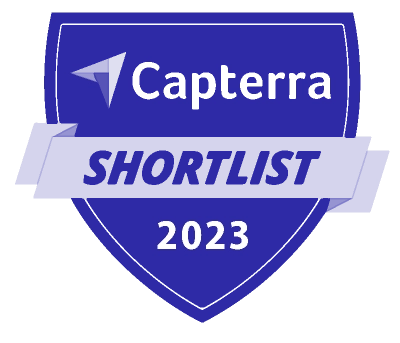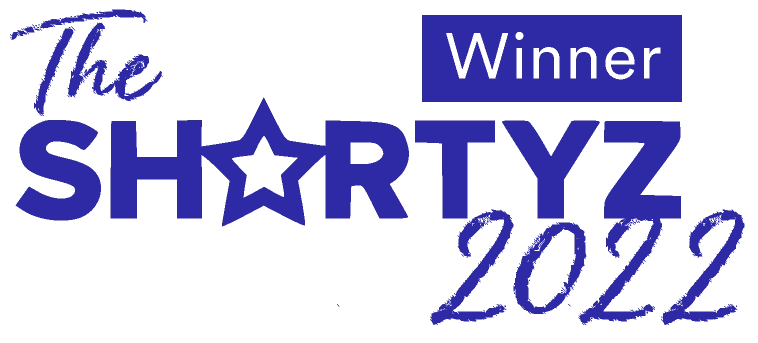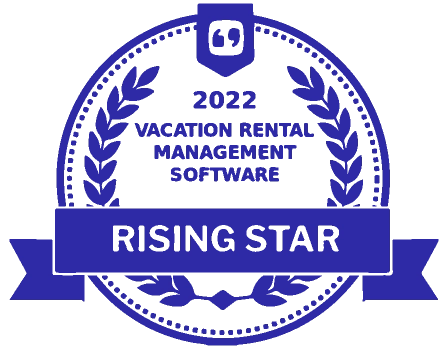The vacation rental industry has boomed in recent years and shows no sign of slowing its pace. Researchers predict that the Global Vacation Rental market will grow at a compound annual growth rate of 6.89% from 2019-2022.
Increased competition, new software developments, and evolving guest expectations are all fuelling dramatic expansion. And as vacation rental managers grow their business, their workload inevitably becomes more complex too.
Hospitality trends for 2019
A few months ago, Hostfully surveyed 220 property managers from June to July last year. We asked vacation rental management companies (VRMCs) how they are responding to increased competition and their strategies for growth in the coming year.
Note: This article is part 1 of 5 of a series on the topic of hospitality trends.
The competition is heating up
Amongst the vacation rental managers we surveyed, we found that there were two distinct categories: those with 1-5 property listings and those with 6+ listings. The verdict? No matter the size of your business, the industry is more competitive than ever. Here’s what VRMCs had to say in numbers:
- Both segments agreed that competition is increasing.
- 80% said that there was “slightly more” or “a lot more” competition.
- 18% said that there was no change in levels of competition.
- Only 2% said there was “slightly less” or “a lot less” competition.
Sometimes, a chart is worth a 1,000 words:

Plans for growth: past and present
Interestingly, high levels of competition appear to be driving growth. As VRMintel reports, the demand for short-term rentals is predicted to increase by 59% from 2017 to 2022. And this rapid rate of growth is confirmed in VRMA’s 2019 report, which showed year-on-year bookings growing across the board. VRMA’s data also suggests that technology use appears to be increasing. This is an important finding considering that operating the day-to-day of a VRMC is a series of repeatable tasks – something technology and automation are great at streamlining.
Staying ahead
Given this pressure to keep up with the competition, what are vacation rental managers doing to ensure they maintain an edge? We asked our survey respondents two questions:
- What areas have you grown in the past year?
- What areas will you focus on next for growth?
Growth methods used by VRMCs last year
Interestingly, there were discrepancies between what vacation rental managers have done before compared to what they are planning to do next year. This potentially suggests frustration with the limitations of previous growth methods. Currently, vacation rental managers are focused on the following tactics to scale their businesses to the next level:
- Add new properties
- Increase rates
- Improve marketing
- Dynamic pricing
- New software
- Automate tasks
- Upsell additional services
It’s worth noting that five of the top seven growth methods mentioned were revenue-focused. Only numbers 5 and 6 involved reducing costs and saving time.
Side note on automation: in this case study, we show how a 350+ unit property management company scaled a high-touch guest experience. They used technology and automation not only to boost the guest experience but also to cut costs and save their staff time and frustration.
Increasing inventory still appears to be a favorite opportunity for property managers looking to grow, despite the rapid proliferation of self-managed options and awareness of booking platforms. This signals a continued elasticity in supply within the vacation rental market.

Hostfully also collected freeform responses to the question: What did you focus on for growth last year? Some of the most noteworthy responses include:
- Renovations, interior design, improvements to physical listing
- Focus on guest experience and speed of response time
- Direct bookings website / social media
- Removal of low-profit listings and focus on higher-value properties that are more profitable.
Getting to grips with social media is crucial for success in any sector. But building an online presence is especially important in the vacation rental industry. That’s because social media allows VRMCs to establish a valuable connection with guests and to interact with them in real-time – a powerful way to drive bookings. It’s also a low-cost marketing tool that boosts the chances of attracting repeat guests.
How VRMCs plan to grow their business next year
Property managers need to consistently improve their performance to keep in the game. And so we asked respondents what primary growth methods they planned to pursue next year. Interestingly, a very small number of vacation rental managers (3.6%) said that they are not looking to grow their businesses. But for everyone else, the answers included:
- Increasing occupancy
- Adding more properties
- Improving pricing
- Upselling services

A quick note on pricing
Securing a high occupancy rate for properties is one obvious way to promote growth. But dynamic and improved pricing is also a proven method for boosting revenue. It’s a fire-and-forget solution: just sign up for the service and integrate it with a property management platform like ours. Just like that, machine learning and powerful market surveys help you squeeze a few extra dollars out of your existing assets.
As the industry grows, it’s certain that more software solutions will emerge to address this need. Hostfully is staying one step ahead of the game and has partnered up with pricing experts Wheelhouse, Pricelabs, and Beyond Pricing.
The challenges of upselling
Upselling and cross-selling have long been the holy grail of the $4T hospitality travel industry. Airbnb Experiences now offers guests unique activities conceived and hosted by locals. Vrbo has also added more tours through Expedia. Meanwhile, Booking.com has acquired FareHarbor, a software company focused on providing experiences, tours, and activities. The conclusion? Upselling is a growing trend in the vacation rental industry – one that we emphasize since it doesn’t require large amounts of capital (like acquiring new properties)
But for VRMCs, upselling is hard for two reasons. First, an impersonal and lazy sales pitch won’t convince guests. They want to be shown that this service or product is uniquely beneficial to them, and VRMCs need to demonstrate they understand each individual guest and their needs. Second, VRMCs aren’t set up like hotels to accept small transactions. That said, vacation rental managers are in an unrivaled position when it comes to knowledge of customer expectations. This could put them at an advantage when it comes to opportunities for upselling and cross-selling.
Unfortunately, many VRMCs see upselling as a giant hurdle. In reality, integrating upsells into your operations is simple, given the current state of technological solutions available (see next section).
Digital guidebooks: the remedy to the aches and pains of upselling
Hostfully’s Guidebooks offer VRMCs a unique opportunity for upselling. Through the Guidebooks Marketplace feature, property managers can offer additional services, such as experiences, equipment, cleaning, or late check-out. Guests can buy any of these services directly from the guidebook:

And with a payment provider like Stripe, VRMCs don’t have to bother setting up a merchant account to collect their money. Not only does this create a boutique hotel experience for the guests, but it also boosts your revenue without significant investments (i.e., acquiring new properties).
A few more insights on growing your business
The study also collected freeform responses to the question: How do you plan to grow next year? Noteworthy responses include:
- Increase the length of stay (to reduce turnover management and costs)
- More repeat bookings
- Become more energy efficient with solar and wind power
Repeat bookings
While attracting new guests is a no-brainer for property managers, encouraging vacationers to keep coming back to your rental property is another great way to increase ROI. It’s less expensive to keep existing customers than to find new ones. Securing more repeat bookings helps VRMCs establish a steady flow of bookings year-round.
Energy efficiency
A focus on energy efficiency is both noteworthy and unsurprising, given the prominence of sustainability issues in the public conversation today. For property managers, an eco-friendly rental property not only distinguishes you from competitors but can also save you money in the long term. One way VRMCs can make their properties more sustainable is with an environmentally friendly security system. Such an investment could offer significant savings as well as offering some interesting marketing opportunities.
The take-away
Growth in the VR industry is speeding ahead, and market trends are volatile. As the world of hospitality continues to transform, VRMs are putting growth methods at the forefront of their 2020 business strategies. This means a greater focus on creating exceptional and unique guest experiences, maximizing bookings, and maintaining a competitive edge.





